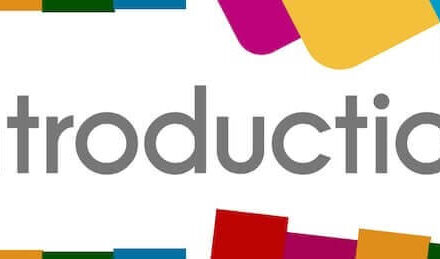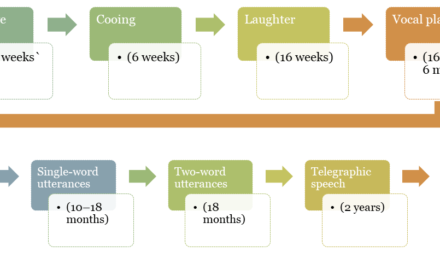7 Reasons Why Learning a New Language Won’t Get You a Job

In today’s globalized world, learning another language can seem like it will improve your career options. But just having language skills by themselves is rarely enough to get hired for most jobs.
Content
- Can I Get a Job If I Learn a Foreign Language?
- Integrate Language Skills with Other Qualifications
- Keep Learning Languages for Personal Growth
- Key Takeaways
Can I get a job if I learn a foreign language?
While languages are great to learn, employers also look for specific skills, experience and expertise related to the role.
Here’s a realistic look at why language abilities alone usually don’t lead directly to a new job, along with tips to strategically use languages to enhance your career.
1. Most Jobs Don’t Strictly Require Other Languages
The vast majority of professional roles do not list knowledge of a foreign language as a strict requirement or qualification. The ability to speak another language is viewed positively, but not as a core competency.
This is especially true in English-speaking countries where English fluency remains essential for most positions. Multilingual skills can provide an advantage, but English proficiency is still a priority.
The main exceptions are specialized language-focused jobs like translation, interpreting, teaching languages, linguistics research, some community outreach roles, and select international business and diplomacy positions.
For most other professional roles across fields like business, law, finance, technology, engineering, and healthcare.
While employers appreciate multilingual abilities, specific training and direct industry experience are far more important when hiring.
When evaluating your career options, keep in mind most jobs will not require foreign language skills outright. Employers may see them as nice to have, but not a must-have.
2. Knowing a Language Doesn’t Demonstrate Other Key Skills
Beyond the language itself, employers want to know you have the mix of hard and soft skills needed to excel in that particular role.
This includes things like:
- Relevant educational credentials
- Direct industry experience
- Technical abilities like data analysis or coding
- Soft skills like communication, collaboration, problem-solving
- Knowledge of industry-specific concepts and best practices
Just because someone knows Spanish, Mandarin, or Arabic doesn’t necessarily mean they have the specialized business acumen, customer service skills, analytical thinking, or other abilities that make someone the ideal job candidate.
You still need to demonstrate these core professional competencies through your resume, interview answers, work samples, references, and other application materials.
Language knowledge alone does not convey your full set of qualifications.
25 Common Mistakes to Avoid When Learning a New Language
3. Most Second Language Speakers Only Gain Conversational Fluency
Many people study new languages in school, through books or apps, or by living in another country. This allows them to become conversationally fluent – enough to get by socially, run errands, travel comfortably, and manage general interactions.
But this is vastly different from specialized professional fluency related to a certain field or industry.
Without focused practice, most language learners will not gain abilities like:
- Discussing complex technical concepts fluently
- Conducting nuanced business negotiations
- Understanding industry jargon and terminology
- Reading advanced documentation and manuals
- Producing specialized translations accurately
Basic language skills allow you to chat with neighbors, order food, and get around a foreign country.
Employers looking to fill most professional roles prefer candidates who have the industry-specific experience, vocabulary and credentials to excel in that job function over someone with only casual language abilities.
4. Monolingual Environments Are Still Common
There are still many locations, companies, and roles where English is by far the dominant working language. This is especially prevalent in English-speaking countries.
For example, someone who knows French but lacks strong English abilities is unlikely to find jobs in many parts of the United States, Canada, Australia or the UK. The same goes for Japanese in Mexico or Portuguese in Germany.
So while languages like Spanish, Mandarin, and Arabic are valuable globally, if you plan to work in an environment where English remains the primary language, other languages may be less applicable on a daily basis.
You need to be able to function professionally in the local language first and foremost, which is most often still English.
Multilingual skills can provide some advantages, but are not an alternative to English proficiency in most of the countries.
5. Language Gaps Can Be Overcome Through Other Means
Technology has made it much easier to bridge communication barriers between languages without requiring fluency. Things like:
- Real-time translation apps
- AI-powered translation services
- Human interpreters accessible via phone and video calls
- Affordable professional translation for documents
- Multilingual apps, platforms, and help desks
These solutions allow monolingual employers to hire candidates that best match the other skills and experience they are looking for, even if they do not speak the local language fluently.
Language gaps can be overcome through other means as needed.
6. Soft Skills and Direct Experience Still Prioritized
When evaluating applicants, for most roles employers will prioritize criteria like:
- Soft skills: communication, collaboration, work ethic, problem-solving
- Relevant work experience and accomplishments
- Technical abilities and knowledge
- Educational background and training
- Cultural competence
- Leadership potential
- Demonstrated initiative and strategic thinking
Essentially, being able to speak Spanish or Mandarin is considered a nice bonus, but not a substitute for the above traits and direct industry experience that make someone the ideal candidate.
Unless proficiency in a specific language is core to the everyday responsibilities of the role, employers will view it as an asset, but not a primary factor in hiring decisions.
7. Many Applicants Have Some Language Skills
In our increasingly globalized and multicultural world, it has become much more common for professionals – especially younger ones – to have at least some second language abilities.
Many job candidates now have some basic bilingual or multilingual abilities, especially in widely taught languages like Spanish, French, German, and Chinese.
As a result, just having conversational skills or high school-level proficiency in another language does little to make you stand out.
You need to have other abilities to stand out from the applicants who likely have similar language backgrounds and abilities as well.
Strategically Integrating Language Skills with Other Qualifications
Again, this does not mean language skills have no career value or that learning them is pointless.
Being multilingual is absolutely an asset.
It demonstrates positive personal traits like discipline, cultural awareness, and intellectual curiosity.
Professionally, language abilities can enhance your profile and open additional opportunities when strategically combined with the core qualifications and experiences employers prioritize.
Here are some tips on integrating language skills effectively:
- Take courses in your target language to build specialized industry vocabulary and apply the language in a professional context.
- Do academic exchanges, internships or work abroad to gain direct experience using the language for business, technology, medical or other professional purposes.
- If already employed, look for ways to utilize your language skills in your current role by taking on international clients, translating materials, or providing support on global projects.
- Learn industry-specific terminology and cultural nuances related to your field and location of interest.
- Seek out bilingual work environments and roles where the language is indispensable so you can apply skills directly.
- Build highly desirable skills like communication, relationship-building, data analysis, digital literacy, and project management to complement language abilities.
- On your resume and in interviews, thoughtfully highlight how your language skills provide additional value on top of your core credentials and experiences. But don’t overemphasize languages as your only strong point.
When strategically integrated as one component of a well-rounded skill set and professional profile, foreign language abilities can give you an edge over monolingual candidates.
But on their own, they rarely outweigh the other qualifications employers look for first.
Keep Learning Languages for Personal Growth
By all means, keep learning new languages. They provide tremendous benefits related to personal development, cultural insight, travel abilities, and global relationships.
Just avoid viewing language skills as a fast track to employment without developing other professional skills too. And be thoughtful in how you convey your language background as an asset within your broader experience.
With a realistic perspective and strategic approach, foreign language skills can become a significant advantage in your career over time by expanding your professional opportunities and capacity to engage globally.
Key Takeaways:
- Learning languages has great personal benefits. But don’t assume it will directly qualify you for most jobs on its own.
- Research which languages are assets in your target field and location. Focus first on languages that align with practical career goals.
- Become as fluent as possible. Move beyond just vocabulary to gain real communication abilities.
- Align language learning with your professional industry. Learn relevant vocabulary and terminology.
- Get experience actually using languages professionally, not just conversational contexts.
- Combine language skills strategically with other key abilities employers want like industry knowledge, technical skills, problem-solving, and soft skills.
- On your resume and in interviews, present languages as an additional asset within your broader qualifications, not the sole one.
- Keep developing language skills through higher education, immersion programs, and professional opportunities.
- Use languages to add value and open opportunities. But also build a strong overall profile beyond just language fluency alone.
By taking this thoughtful approach, you can leverage language abilities to enhance your career and stand out in today’s competitive global marketplace.
Just be realistic that multilingual skills are one important part of your professional profile, not the only employability factor.












